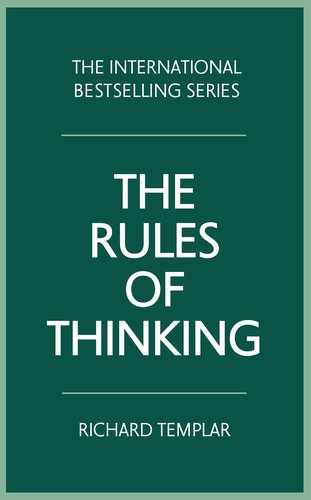Oh how our minds enjoy repetition! It’s so reassuring, doing the same thing over again. It gives your mind a lovely sense of security. That’s absolutely fine if the thing you keep repeating is good for you – cleaning your teeth twice a day or exercising regularly. And it’s fine if it’s neutral and doesn’t get in the way of the rest of your life – watching the 10 o’clock news, or having to put your left sock on before the right one. But what about all those habits that don’t benefit you and sometimes get in your way – needing to eat at 6 pm sharp, or traipsing back downstairs after bedtime to check you really did lock the front door, even when you know you did?
All of us get into habits we come to regret and some people are prone to the more intrusive ones – like double-checking you locked the front door, or biting your finger nails. Even the most innocent habit, such as washing your car every Sunday, becomes intrusive if you start feeling compelled to do it. If these compulsions become obsessive and dominate your life, you’ll need professional help to break free of them. But many of us tend to milder versions of this, behaviours that are at their most insistent when we’re feeling anxious or worried.
That’s because they calm your mind – those reassuring, regular, secure habits. Just what your brain needs when it’s feeling disrupted. But not necessarily what you need. I can always tell when my wife is feeling stressed or anxious because she starts straightening objects on the mantlepiece or the shelves.7 Straightening things is less intrusive than some responses – it’s worse if you feel you have to check all the doors in the house are properly shut or make sure there’s an even number of teabags in the box. And there is no end to the strange little habits your mind will have you running around after if it’s feeling anxious and wants you to calm it down.
So how to stop when it’s getting in your way? If your habits – rituals even – are worse when you’re anxious, clearly reducing the anxiety will reduce the habits. So the first thing is to address your underlying stress and worry, which obviously is a good idea anyway.
Distraction is of course ideal if you can do it. If that’s too much to start with, an alternative is to replace one habit with another. Replacing smoking with vaping is a very obvious example of this, but when your brain demands you rearrange the bookshelf yet again, you can try to deflect it into straightening the mantlepiece instead – which is much less disruptive to your life because it’s quicker. You might be happy with this new displacement activity for your anxieties or you might decide to reduce the habit again after a while. It becomes a habit in itself to distract yourself with the lesser habit.
The most useful strategy of all however, from now on anyway, is to recognise these habits as soon as they start to form and take avoiding action. The easiest time to break a habit is before it starts. So the very first time you’re about to go back downstairs to check you locked the front door, catch yourself about to form a habit and stop it right there. Distract yourself, sing a song, take a bath – whatever is going to work best, now is the moment to do it.
THE EASIEST TIME TO BREAK A HABIT IS BEFORE IT STARTS
_________________________
7 She spent literally years trying to work out how I knew. I had to tell her in the end.
